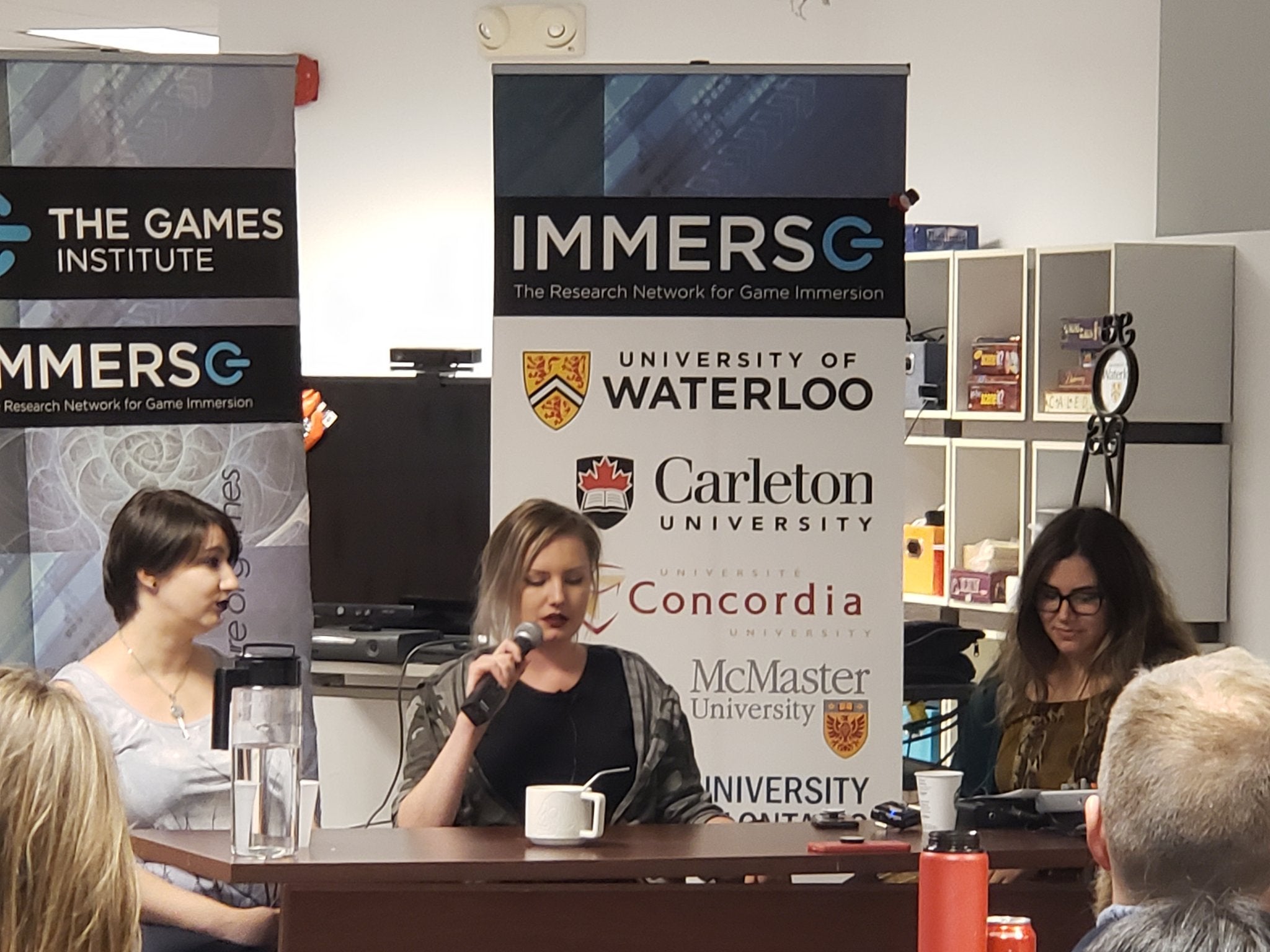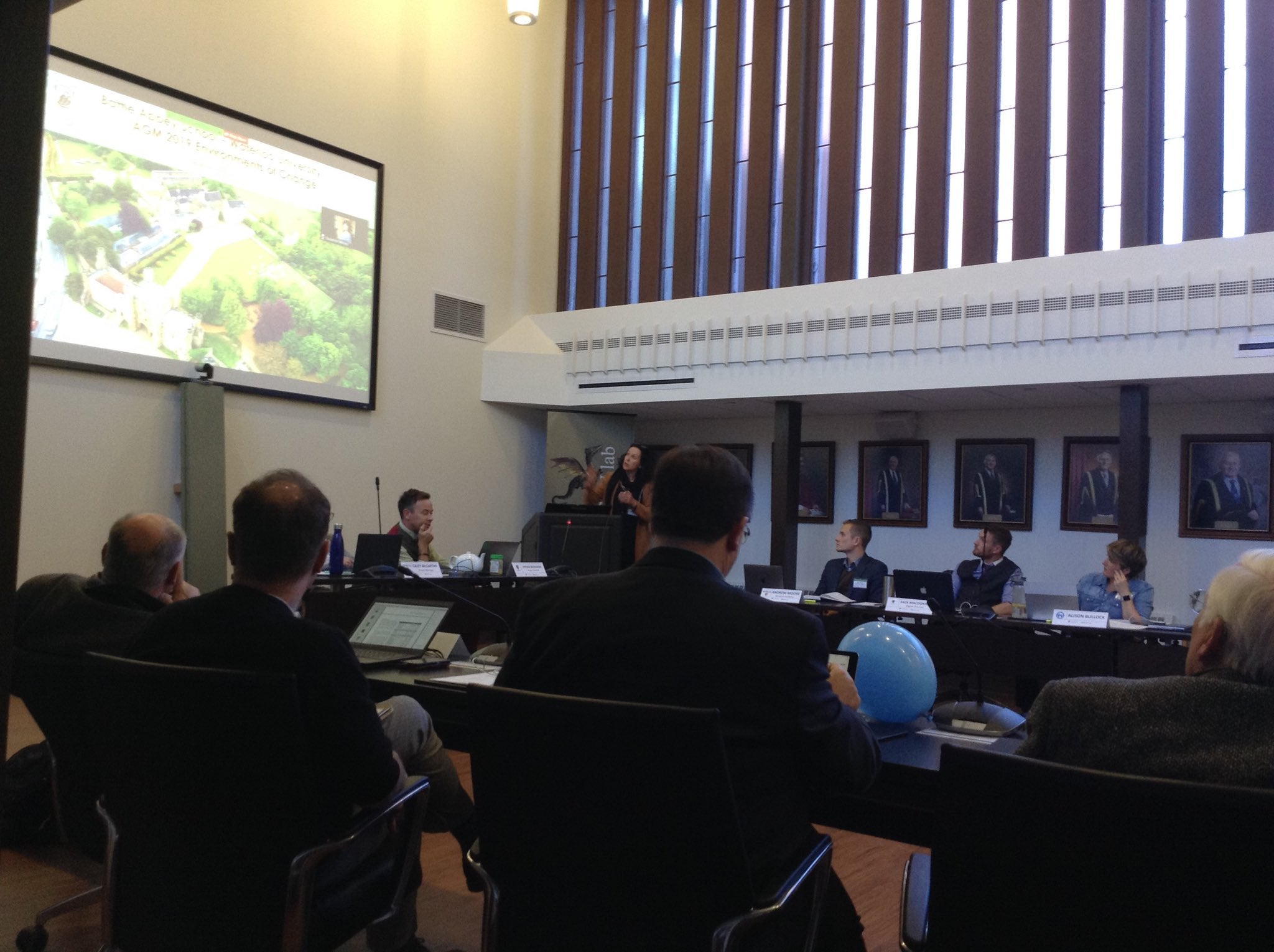Multidisciplinary Horror Games Panel: Five Nights at Freddy's


Pamela Maria Schmidt, Experimental Digital Media Master's student, will be taking over our Instagram from Nov. 28 - Dec. 3 to bring us along on her travels to Prague for the "Monsters: an Inclusive Interdisciplinary Project" conference organized by Progressive Connexions.
Dr. Deltcho Valtchanov, GI alumni and Chief Research and Data Scientist at Axonify, presented "Commercializing AI for Workforce Training: a data first and purpose-built approach" on Friday, November 8th at the VI/AIP Seminar. He presented on how Axonify has been able to successfully deploy and commercialize a variety of machine learning systems.

Nicholas Hobin, PhD candidate in English Language Literature, will be presenting at SLSA 2019 in Irvine, California, an annual conference focused on intersections between Literature, Science, and Art.
Hobin presented research from his most recent paper "The Creature is Ready", which focuses on the representation of animals in the game Red Dead Redemption 2 with respect to the unusual embodiment of animals.
Oliver Schneider, Assistant Professor in Management Sciences and researcher in HCI and haptics, recently led the Canadian Haptics Interdisciplinary Community Fall Workshop.

Sangho Suh, PhD candidate in Computer Science, presented at a PhD seminar for Human-Computer Interaction. The seminar focused on his recent study which investigated how the medium of comics can be used to make abstract coding concepts more concrete and meaningful.
Michael Barnet-Cowan, Associate Professor of Neuroscience, held the "Chair of America's" at University of Rennes 2 in France for the month of September. The Chair of Americas is a section of the University of Rennes 2 which allows for international researchers to work on their campus, giving researchers the opportunity to present to Rennes 2 Universities doctoral students and research staff.
Morgan McGuire, Adjunct Computer Science Professor at Waterloo and Scientist at NVIDIA Research, hosted a discussion on upcoming graphics technologies and their application towards what is called "extended realities". McGuire's talk focused on the new experiences in media that are able to emerge from the application of augmented reality (AR), virtual reality (VR), rendering technology and sensors.